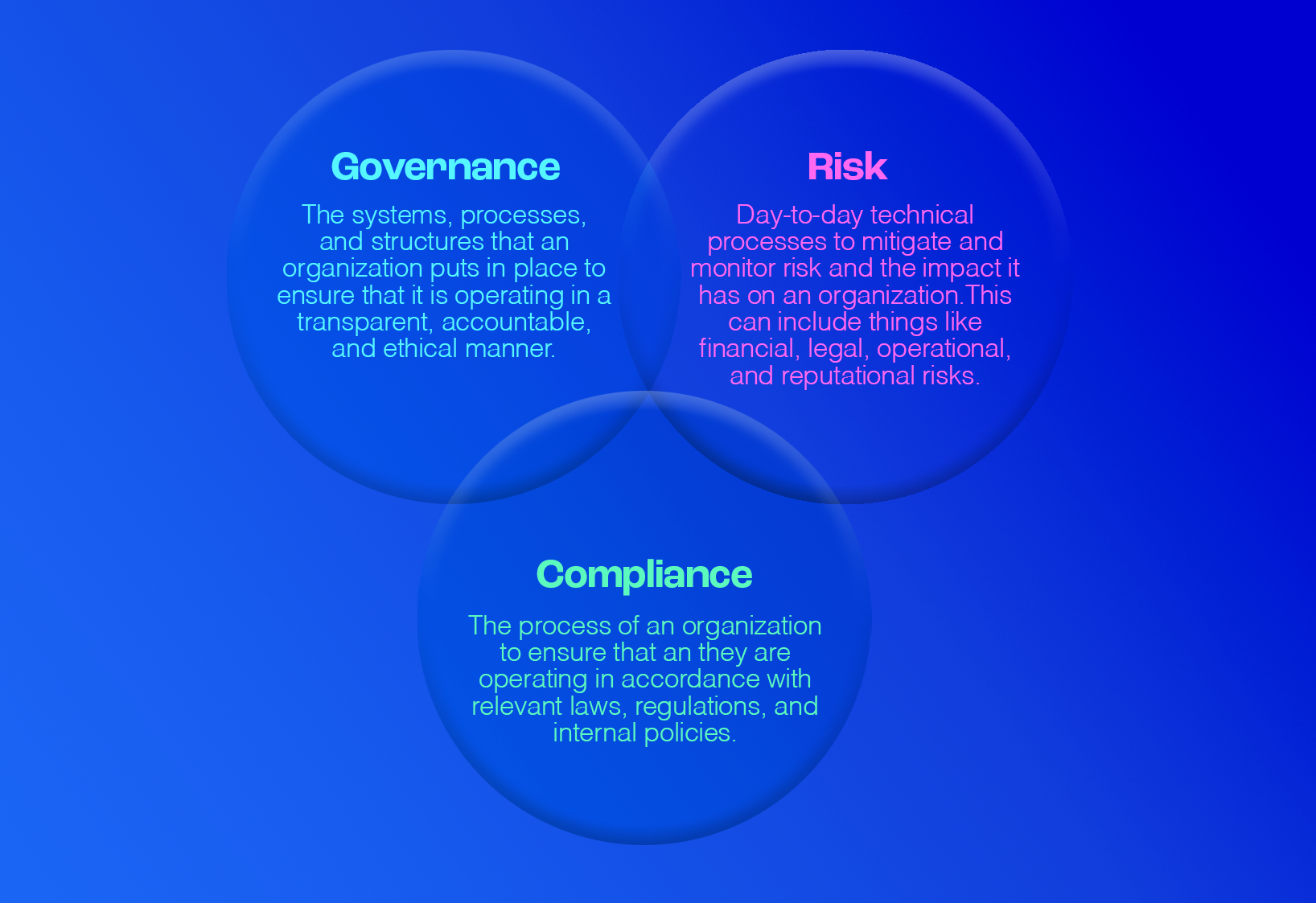Understanding Governance, Risk and Compliance (GRC)
Automated governance, risk, and compliance (GRC) refers to the use of technology to manage and monitor an organization's compliance with laws, regulations, and internal policies. Automating GRC can provide several benefits to an organization, including:
Increased efficiency: Automated GRC systems can help streamline processes, reduce manual effort, and eliminate errors. This can save time and resources that can be reallocated to more valuable activities.
Improved accuracy: Automated GRC systems can help ensure that all necessary steps are followed and that relevant information is accurately captured. This can reduce the risk of errors and mistakes that can result in fines or other penalties.
Enhanced visibility: Automated GRC systems can provide real-time visibility into an organization's compliance posture, allowing management to identify and address potential issues before they become problems.
Reduced risk: Automated GRC systems can help identify and mitigate potential risks, such as data breaches or compliance violations, before they occur.
Improved decision-making: Automated GRC systems can provide data-driven insights that can inform decision-making and help an organization make more informed, strategic decisions.
Overall, automated GRC can help organizations improve efficiency, accuracy, and visibility while reducing risk and enabling more informed decision-making.
GRC can be beneficial for any organization that is subject to external regulations or internal policies, or that has to manage risks in order to operate effectively. Some examples of industries that may benefit from GRC include:
Financial services: Financial institutions are subject to a wide range of regulations, including those related to financial reporting, money laundering, and consumer protection. GRC can help these organizations ensure that they are in compliance with these regulations and manage the associated risks.
Healthcare: Healthcare organizations are subject to regulations related to patient privacy, data security, and quality of care. GRC can help these organizations manage these risks and ensure compliance with relevant regulations.
Manufacturing: Manufacturing organizations may have to manage risks related to product quality, safety, and environmental impact. GRC can help these organizations ensure that they are operating in a safe and compliant manner.
Government: Governments are subject to a wide range of laws and regulations, and may also be required to manage risks related to public safety and security. GRC can help these organizations ensure compliance with relevant regulations and manage risks effectively.
Any organization that needs to manage risks or ensure compliance with external regulations or internal policies can benefit from GRC.

